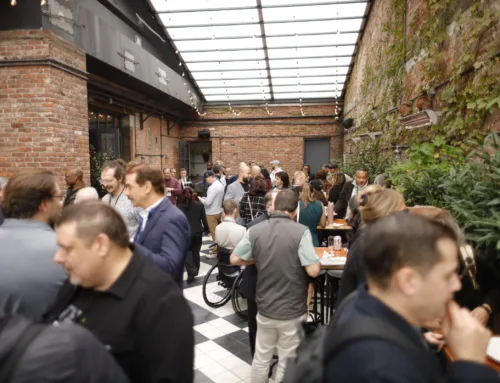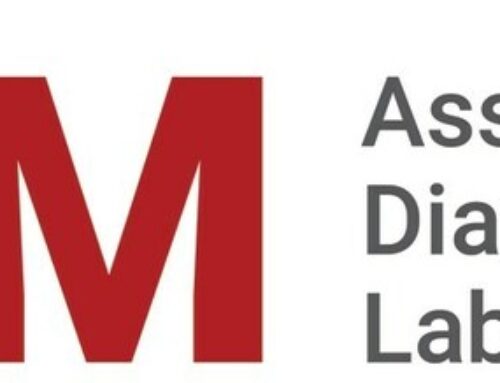Inside the ‘Bitcoin club’ targeting the Premier League – and where it leaves their neighbo
November 13, 2025
The champagne flowed in the home dressing room as the players of Real Bedford celebrated a third consecutive league title under manager Rob Sinclair and promotion at the end of last season.
But it was the tall identical twins spraying the bubbly who drew the focus. “Wink-le-voss! Wink-le-voss!” came the chant from the players who had just secured elevation into the seventh tier of English football.
The billionaire entrepreneur twins Cameron and Tyler Winklevoss — who fought a legal battle with Mark Zuckerberg over who actually conceived the idea of Facebook and invested their subsequent $65million (£49.6m) payoff in the cryptocurrency Bitcoin — had been unaware of English football’s unique non-League structure, from the Premier League to regional feeder leagues,when first approached by Bitcoin podcaster Peter McCormack over a potential investment in the club from his hometown of Bedford, around 50 miles north of London.
The brothers had sponsored McCormack’s hugely successful podcast, What Bitcoin Did. They were so impressed by his plans to take a side from the depths of England’s non-League pyramid into the Football League (the three tiers below the Premier League), investing in and growing the club while improving the playing squad to secure promotions up the divisions, that they agreed to invest $4.5million in Bitcoin in February.
But it was really only from the moment they flew in on their private jet to join a crowd of around 1,500 for a Southern League Division One Central title-clinching game against Kings Langley in April, securing elevation from tier eight, that they were truly hooked.
Now the twins had even loftier ambitions for their new investment.

Entrepreneurs Tyler and Cameron Winklevoss (Astrid Stawiarz/Getty Images)
Under McCormack, Real have risen quickly and are now just three promotions away from the Football League. Their rise and ambition have been compared to that of Wrexham under the celebrity ownership of Ryan Reynolds and Rob McElhenney. The Welsh club also enjoyed three consecutive promotions to jump from the National League (the fifth tier) to this season’s Championship, within touching distance of the elite of English football.
McCormack has always wanted to see a club from his hometown reach the Football League, but the Winklevoss twins believe the Premier League is actually a realistic target.
Real’s unconventional approach to building the club has attracted a level of cynicism.
Bitcoin is controversial. It is unregulated and decentralised, and users can trade anonymously, making it a potential source of money-laundering and criminality. McCormack openly admits he was introduced to the cryptocurrency when using it to buy cocaine during a time when he was struggling with a failing marriage, and subsequently to buy medicine for his mother as she was dying from cancer.
He has now overcome his addictions, and continued to invest in Bitcoin to become a millionaire.
Real’s emergence under his ownership is also challenging the established footballing order locally, as Bedford Town, formed in 1908, have seen their status as the biggest club in the area threatened.
The Athletic went to Bedford to talk to McCormack about Real, a failed merger with the neighbours, the club’s use of Bitcoin and what the future holds, as well as to spend time at Bedford Town to gauge their reaction to the ambitious team who have sprung up on their doorstep.
McCormack is sitting in the modest clubhouse at Real’s Ledger Stadium talking about the Winklevosses’ investment ahead of a tie against Stamford in the FA Trophy, English non-League football’s premier knockout cup competition.
“My initial contact with them was in Austin, Texas,” explains the Real chairman. “We were having a beer. I told them the idea: get the club into the Football League. And I think it was Tyler who said, ‘What’s that?’ I explained the structure (of English football) and he said, ‘Why don’t we go for the Premier League?’
“So I said, ‘Alright!’ I made it the goal, and everyone laughed at me. I sounded like an idiot. But after three promotions, we are a third of the way there. If we win another three in the next seven years, we will have reached the Football League in 10 years.”

Peter McCormack, right, congratulates Real Beford manager Rob Sinclair after a 3-1 win against Enfield in February (Tom Jenkins via Getty Images)
The day the Winklevoss twins visited for the Kings Langley game has cemented their commitment to McCormack’s vision.
“It was amazing,” he says. “They turned up on their jet, came in, toured the ground, watched the game and when we won the league, they celebrated with the players all night. I think they really understood at that point because they’ve been so dialled in since.
“We speak nearly every week, and they are always asking how we are progressing.”
To put the ambition into context, Real Bedford — a name inspired by the branding of Lionel Messi’s MLS team Inter Miami — were known as Bedford United and then plain Bedford FC, and would only attract a handful of people to watch their games in the sixth tier of non-League amateur football (the 10th level of the English football pyramid overall).
The Ledger Stadium sits in the shadow of larger and more established neighbours, Bedford Town, a club who have also tasted two promotions in the past two seasons and are now competing in sixth-tier National League North, one division above Real’s new kids on the block.
In fact, as you walk out of the Real dressing rooms at The Ledger, Town’s pitch is immediately to your right — closer than Real’s one. A stray shot in the Real game would land on Town’s turf but for a large row of trees.
The two grounds share a driveway.

The view of Bedford Town’s pitch as you walk out of Real Bedford’s tunnel (Rob Tanner/The Athletic)
With such close proximity, it would be logical for the clubs to join forces and make their respective Football League dreams closer to reality, but the rivalry runs too deep.
“I wondered why Bedford didn’t have a Football League club when I started looking about eight years ago,” says McCormack. “I spoke to Bedford Town and even made a bid for them four years ago, which was rejected. Then we proposed a merger (last season). There are only so many people in this town (the population of the borough of Bedford is 185,200) and we are fighting over an audience.
“We are sustainable long-term. I made an offer to merge, but their fans hated the idea. It was never going to work, so we pulled out.
“We’re new with fresh ideas. Just a bit different. We’re exciting. We invest in the town schools. We’ve got a women’s side (who have won two promotions and are two divisions away from the Women’s Super League). We want to build an academy to give opportunities to local boys and girls. We’re a proper, modern football club.
“So I think unfortunately, at some point, we overtake them (Town), and that’s going to make life even more difficult.”

The players’ tunnel at the Ledger Stadium (Tom Jenkins via Getty Images)
Town’s approach is certainly more conventional.
Like most non-League clubs, they are run by a committee of local businessmen headed up by former player Jon Taylor. They still have a significantly larger matchday attendance at The Eyrie, averaging around 860 for home games.
They also have history on their side, especially in the FA Cup, the oldest knockout club competition in the world, where lower-league and non-League clubs can progress to eventually face the biggest teams in the country. Town have previously taken on Arsenal, Newcastle United and Everton, as well as other professional sides.
Recently, the club spent nearly £1million on a new UEFA-standard artificial pitch which allows for community use and additional revenue streams, and they have also started a youth academy.
Despite rising so quickly themselves, they are now 14th in the 24-team National League North, a division that contains former Football League clubs Chester, Darlington and Hereford United, and their aim is to consolidate.

Spectators make their way into The Eyrie, Bedford Town’s home ground (Tom Jenkins via Getty Images)
“We’re really realistic — we’re punching a bit above our weight,” says club secretary James Smiles. “We need to keep our feet grounded, make ourselves a football club that is good at this level. Sustainable. We’re not reliant on big investors or something like that. We just don’t have that. We’re relying on the people of Bedford getting behind us and enjoying it.”
A merger would have united Town’s traditional approach and Real’s new wave, but an agreement couldn’t be reached before an FA deadline for the current season. If it had been, Town would have had to step down to join Real in their division.
“I was glad it didn’t happen,” said James Edmunds, who is secretary of the Bedford Town Supporters’ Club having been a fan for 30 years. “Objectively, you could make a case that one club with bigger resources at the same level is better than two, but at what cost? It would have meant the loss of my club’s identity.
“Non-League is special, because the clubs are smaller and you feel closer to it. It feels more yours. It is on your doorstep and is part of the community. I don’t want to lose that.”

The Ledger Stadium (Paul Harding – The FA/The FA via Getty Images)
That left each club ploughing their own furrow.
McCormack, who previously worked in advertising and marketing in London before investing in cryptocurrency, makes no bones about the fact his club are backed by Bitcoin, which exists only in digital form and is not overseen by any bank or government, even if the day-to-day financing of Real remains more conventional, in sterling through local sponsors and matchday revenues.
Being tagged ‘The Bitcoin Club’ was a key selling point when McCormack — a libertarian who has forged a reputation for interviewing controversial figures on his other podcast, The Peter McCormack Show — approached the Bitcoin community for sponsorship.
“The first two years of funding the club, we just really did well and made profits, and got £500,000 over five years for our front-of-shirt sponsor, which is unheard of at this level,” he says. That constituted a record deal for a club outside the Football League. They were all Bitcoin sponsors.
“I rang around all the companies I knew and told them what we were going to do. ‘We will be The Bitcoin Club — do you want to be a part of it?’ They all said yes. And so the first two years were profitable.”

McCormack watches on from the back of the stand at The Ledger (Rob Tanner/The Athletic)
McCormack, who owns 53.5 per cent of the club, with 45 per cent owned by the Winklevoss twins, says that, as well as the shirt sponsorship deal with Gemini that was paid entirely in Bitcoin, the club has now sold £300,000 in merchandise. Their branding, the skull and crossbones — inspired by a visit McCormack made to the Oakland, now Las Vegas, Raiders of the NFL — has proved popular, especially with American fans, some of whom fly to the UK and attend games.
“That Raiders game was, like, rock ’n’ roll and hostile. I loved it,” says McCormack.
The influence of American sports culture extends to the music played before and during the game. Again inspired by his experience at a Raiders game, the players run out to Metallica’s Enter Sandman and AC/DC, the songs pumped out by McCormack himself on the decks in the back of the stand in one of his many matchday roles.
This is something of a family affair, with brother Neil now club secretary, father Gerry the kitman, and son Conor vice-chairman.

Real Bedford are known as ‘The Pirates’ (Rob Tanner/The Athletic)
According to McCormack, the club had a turnover of £640,000 last season but spent £1.3million as their playing budget doubled and investments were made in the infrastructure, although to achieve their ultimate goals, a move away from their present ground, which they rent from the local council, will be key.
This season, McCormack estimates Real could lose up to £900,000, but he says the club are still on a sound financial footing as investments in Bitcoin continue to rise. This reliance on cryptocurrency, with its potentially volatile nature, provoked some scepticism in football circles, but McCormack believes it is a more prudent form of investment — for all that there have been Bitcoin bubbles where the value has risen and then crashed on several occasions, the most recent, between 2021 and 2024, following the global pandemic.
“When we take the investment, we turn it into Bitcoin,” says McCormack. “That’s been good for us. We took £3.6million in Bitcoin. What we hold now is over £6m. And we spent some of it. So it’s been a sensible decision.”
It wasn’t the funding model that initially had Lui La Mura, the club’s former owner, dubious about selling up. Rather, it was the scale of McCormack and the Winklevoss twins’ ambition.
“Initially I thought it was too much, 100 per cent,” says La Mura, who also runs a boxing gym, which doubles as a conditioning area for the team, and remains a mentor to the club. “But they convinced me, and now I am 150 per cent convinced the club is in good hands.
“I kept my eyes on what has been happening, and it is all going in the right direction. With the backing and what is going on behind the scenes, they are going to good places. The Premier League may be a stretch but the Football League? Definitely.”

The Ledger Stadium (Paul Harding – The FA/The FA via Getty Images)
Real have adapted to their new division well. Victory at Stamford last weekend lifted them to third — which would be good enough for a place in the promotion play-offs at the end of the season — in the Southern League Premier Central. McCormack is convinced they will achieve that goal of reaching the Football League, too.
“It is not an if but a when,” adds the chairman. “The goal was to do six promotions in 10 years, and we have done three in three. We can do three more. Then… who knows?”
As for neighbours Town, there is the prospect of Real being in the same division as them next season, heightening a growing rivalry.
“I think it’s fair to say we don’t feel very warmly about them,” says Edmunds. “They have come up very rapidly from a lower level and have a massive amount of money, apparently, and an owner who is very self-confident, shall we say, and talks a lot about their ambitions.
“Non-League clubs are competing for attention and resources, not just against other clubs but other things that people may spend their money on. So having another club on the doorstep at a similar level to us isn’t really helpful.
“There is very much the feeling on this side that they are a one-man club — Peter McCormack FC. They don’t have a particularly big fanbase: we don’t hear them when we are playing at the same time.

The entrance to Real’s Ledger Stadium is just behind one of the stands at Town’s Eyrie home (Tom Jenkins via Getty Images)
“It would be annoying if they overtook us and changed the natural order, but ultimately those who follow Bedford Town are only concerned with Bedford Town and want the best for our club. The rest is their (Real’s) business.
“We wouldn’t say no to becoming a Football League club ourselves, but success and sustainability… one shouldn’t come at the expense of the other. We just want there to always be a Bedford Town.”
Search
RECENT PRESS RELEASES
Related Post




